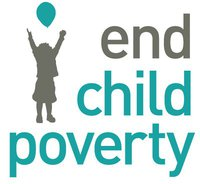Children across Scotland cut adrift as poverty leaves COVID-Generation facing a perilous future
20/05/2020
News
- John Dickie, Director of Child Poverty Action Group in Scotland

New analysis published today has highlighted that even before the devastating impact of COVID-19 on household incomes, child poverty has been rising rapidly in some of the poorest communities in Scotland and across Britain, leaving growing numbers of children cut adrift and ill equipped to cope with the impact of the pandemic.
The End Child Poverty coalition is calling on government at every level to redouble efforts as a steady four-year rise in child poverty – predominantly in working families – has pushed families to breaking point.
Members of the campaign grouping are calling on the Westminster government to commit to an ambitious UK wide strategy to end child poverty in the aftermath of coronavirus, and for Holyrood Ministers to redouble efforts toward meeting Scotland’s statutory child poverty targets. They fear the impacts of the pandemic will only have deepened child poverty and drawn more families below the poverty line and are urging both UK and Scottish governments to immediately increase the amount of money in families’ pockets.
The coalition, working with researchers at Loughborough University, has published a new analysis of Government data that documents how child poverty rates across Britain have swelled over the last four years, even before housing costs are taken into account.
The report’s analysis also shows how unequally child poverty affects the country, with children in some parts six times more likely to be growing up in poverty than their neighbours in less deprived areas. While child poverty is deteriorating across better and worse off areas of the country proportionately, those places starting off with a high rate see many more additional children pulled into poverty.
John Dickie, a member or the End Child Poverty Coalition, and director of the Child Poverty Action Group (CPAG) in Scotland said:
‘We may all be in this coronavirus storm together, but we really aren’t all in the same boat. This official data shows the extent to which too many children have been cut adrift over the past four years, and are already experiencing unacceptable hardship as a result of cuts and freezes to UK benefits. That’s why we are urging the Chancellor to strengthen the social security system by immediately increasing household income for those least well-off.
Here in Scotland the Holyrood government must act to use all the powers at its disposal to make emergency financial payments to low income families. Scotland’s much welcomed child poverty strategy must be put at the heart of decision making on every aspect of the country’s recovery and renewal from the pandemic.’